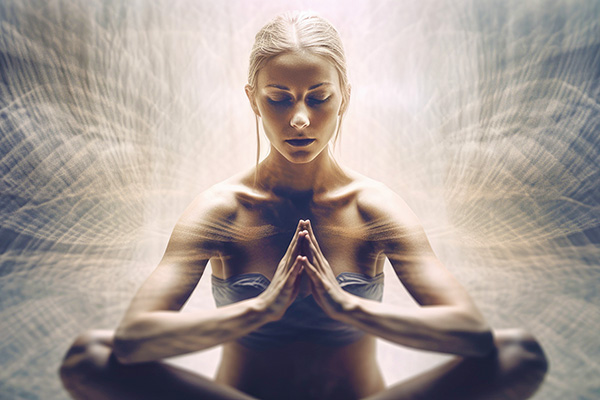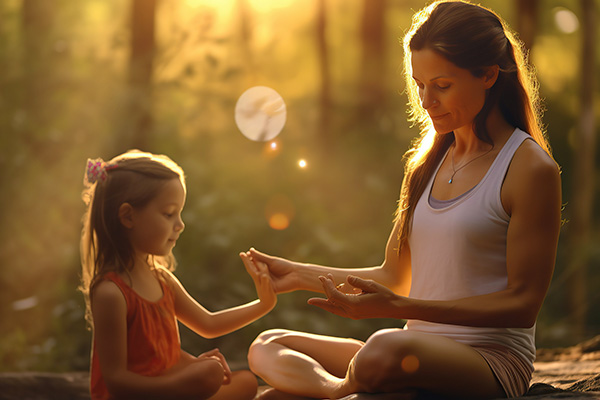metaphysical practice
Navigating Loneliness During the Holidays
 The holiday season is traditionally portrayed as a time of togetherness, love, joy, and belonging. We are inundated with media images of families gathered around a festive table, friends celebrating, and communities coming together.
The holiday season is traditionally portrayed as a time of togetherness, love, joy, and belonging. We are inundated with media images of families gathered around a festive table, friends celebrating, and communities coming together.
Paradoxically, for many people, this time of year is instead filled with feelings of loneliness, isolation and disconnection.
The root cause is the societal stereotype and cultural assumption that everyone should be joyful, happy, and surrounded by loved ones during the holidays. If you’re not, for whatever reason, it can lead to feelings of inadequacy, isolation, and social failure.
Holiday loneliness is exacerbated by the stark contrast between our actual circumstances and the commercially driven, idealized versions of holiday gatherings and celebrations we see in advertisements, television shows, movies, and social media. This increases feelings of disconnection, low self-esteem, and even depression.
Loneliness during the holidays can have a significant impact on mental health. Feelings of isolation and disconnection during this time of year can exacerbate existing mental health issues and lead to the development of new ones. The constant reminders of togetherness and joy, combined with a lack of social connections and meaningful interactions, can increase feelings of loneliness, leading to emotional distress, feelings of emptiness and hopelessness, and a decline in overall well-being.
Financial Prosperity Requires An Energy Shift
 It takes more than just talent and hard work to enjoy true abundance and prosperity. In fact, our energy has the most profound impact on our success. People who struggle in this area of their lives often need a major energy shift to unlock new levels of abundance in their lives, especially in the area of financial success.
It takes more than just talent and hard work to enjoy true abundance and prosperity. In fact, our energy has the most profound impact on our success. People who struggle in this area of their lives often need a major energy shift to unlock new levels of abundance in their lives, especially in the area of financial success.
‘Energy’ in this context refers to the subtle creative forces emanating from our thoughts, emotions, beliefs and actions. By the way, this is not just a metaphysical or esoteric concept. Modern science also recognizes that everything is energy.
Everything in the universe is made up of tiny particles. These particles are in constant motion and vibration. In other words, they are energy. The energy of these particles is what we experience as matter.
For example, the screen of the device on which you are reading this blog post is made up of atoms that are constantly vibrating at a very high speed. This vibration is what you currently experience as the solidity of your cell phone or computer screen.
The same is true for all matter, whether it’s an object, plant, animal, person or place, or even your own body. Everything around us is made up of vibrating particles, and the energy of these particles is what we experience as physical matter.
The Powerful Practice Of Color-Based Affirmation
 Affirmations are known to be a powerful spiritual practice for manifestation, self-healing, and personal empowerment.
Affirmations are known to be a powerful spiritual practice for manifestation, self-healing, and personal empowerment.
What is less well known is that associating your affirmations or intentions with specific colors can greatly enhance your practice by infusing it with the powerful symbolism, purposeful energy frequencies, and mind-altering psychoactive effects of different colors. It aligns our energy vibration more powerfully with the desired effect or outcome.
The practice of color-based affirmation, also known as ‘color therapy affirmations’ or ‘rainbow affirmations,’ draws inspiration from a variety of traditions and disciplines, including spirituality, metaphysics, chromotherapy, and color psychology.
Color has a rich history of symbolic significance that spans all cultures and many centuries.
Ancient civilizations recognized both the metaphysical and therapeutic power of color, while many religions and spiritual wisdom traditions have an intricate tapestry of color symbolism in their teachings and practices. The ancient Egyptians, for example, recognized the healing power of color. They had a sophisticated understanding of color that they used in their temples and rituals.
Full Moon Release Ritual
 Tomorrow’s Gemini Full Moon will be the last full moon before the winter solstice. Traditionally also known as the Beaver Moon, Frost Moon, or Mourning Moon, this full moon is a perfect time for introspection, spiritual contemplation and inner transformation.
Tomorrow’s Gemini Full Moon will be the last full moon before the winter solstice. Traditionally also known as the Beaver Moon, Frost Moon, or Mourning Moon, this full moon is a perfect time for introspection, spiritual contemplation and inner transformation.
The November Full Moon invites us to gather our resources, release what no longer serves us, and embrace the transformative power of the changing seasons.
As we prepare for winter within and without, we can cultivate the resilience and wisdom necessary to meet the challenges and opportunities that lie ahead. The ideal way to do this is through a full moon ritual.
Full moon release rituals have been practiced for centuries in various cultures and spiritual traditions. The goal of these rituals is to create space for growth, transformation, and new beginnings. The phases of the moon are traditionally associated with cycles of growth, decline, and renewal, making the full moon a particularly powerful time to release negative energies, unwanted patterns, and emotions that no longer serve us.
The ancient Egyptians worshipped the moon goddess Isis, who symbolized fertility, magic, and transformation. They believed that the full moon had the power to cleanse and purify.
The Forgotten Art Of Self-Healing
 Self-healing is a holistic approach to wellness that too often takes a back seat in our modern existence.
Self-healing is a holistic approach to wellness that too often takes a back seat in our modern existence.
The mind-body has an incredible restorative and self-healing capacity that is often overlooked. Harnessing these inner forces can lead to a profound transformation of one’s life.
Self-healing is not just about recovering from physical ailments; it encompasses mental, emotional, and spiritual well-being.
It is the process of harnessing our body’s innate ability to recover from physical ailments and mental health challenges without relying solely on external intervention.
It’s about nurturing your body’s natural ability to rejuvenate, repair and thrive.
To achieve self-healing, it’s critical to recognize the mind-body connection. Our thoughts and emotions have a profound effect on our physical well-being. Negative thoughts and feelings such as stress, worry, anxiety, fear and resentment can all manifest as physical symptoms. Self-healing addresses these underlying emotional and mental issues to begin the healing process.
Work-Life Balance For The Single Parent
 Single parents face many daily challenges and can easily feel overwhelmed. This is especially difficult when juggling childcare, household responsibilities, and your career or business.
Single parents face many daily challenges and can easily feel overwhelmed. This is especially difficult when juggling childcare, household responsibilities, and your career or business.
It is undoubtedly important to maintain a healthy work-life balance in your life, but it is easier said than done. How does one balance work, family, life, and love as a single parent in the busy world we live in?
Here are some simple strategies for single parents to achieve a better work-life balance.
Work-Life Boundaries. The first important step is to set boundaries between your work and home life. I find that this is often a key element that is missing in the lives of many of my clients.Without clear boundaries between work and home, it is very difficult to be fully present and focused on one or the other at any given time. Without defined boundaries, the single parent is constantly straddling two worlds.
Creating work-life boundaries simply means not mixing business with pleasure. You designate specific times and activities for work and specific times and activities for spending time with your children. This means no thinking about work, no work-related texting, no checking email, and no taking phone calls outside of your designated work time.
